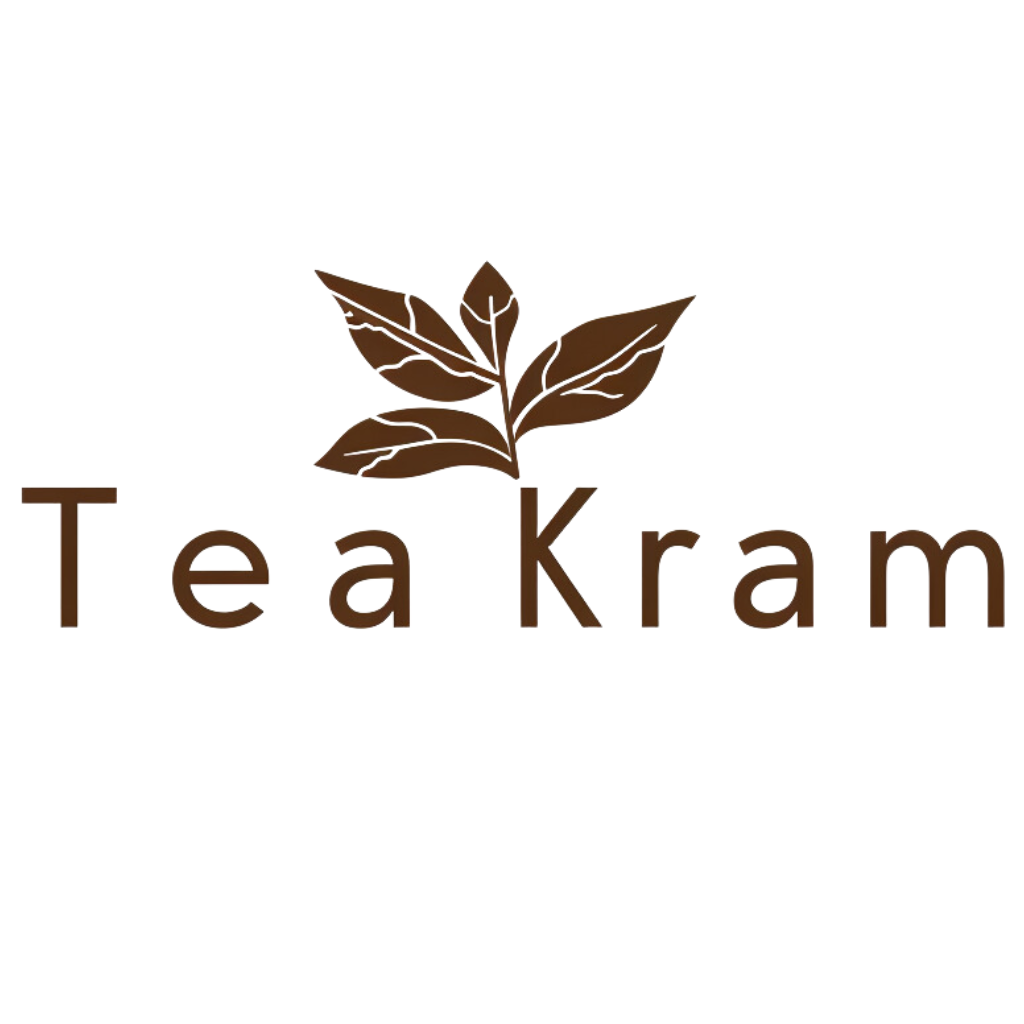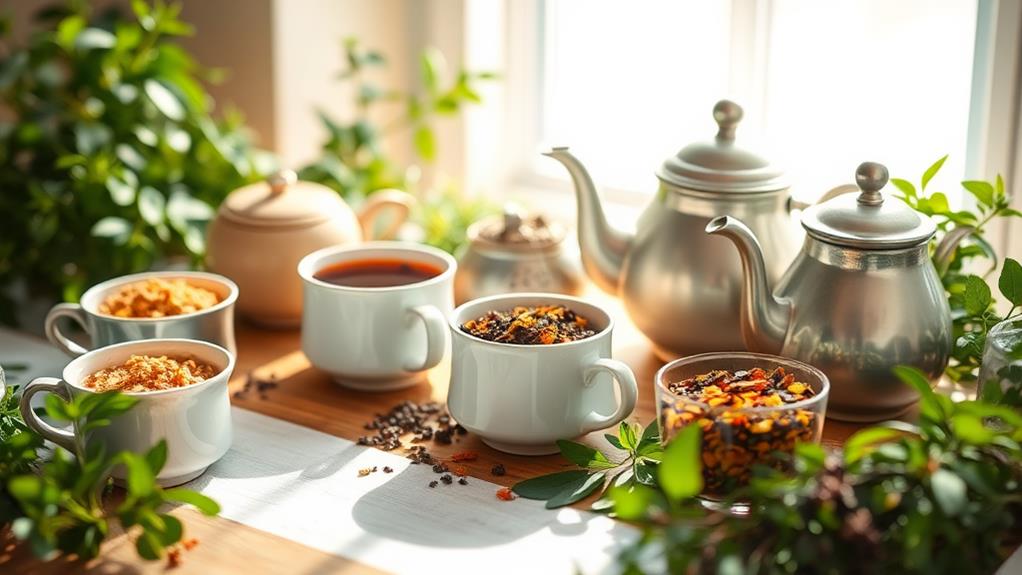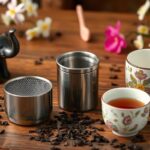Switching to tea is a smart choice that offers a world of health benefits and exciting flavors! With rich antioxidants, tea can boost your heart health and even help manage weight. You'll find a variety of teas, like energizing black tea, invigorating green tea, soothing herbal options, and delicate white tea. Plus, tea has less caffeine than coffee, which means you can enjoy a milder energy boost without the jitters. Making the switch can feel simple—start by gradually cutting back on coffee while exploring different types of tea. You might be surprised by how much you love it, and there's more to discover!
Benefits of Drinking Tea
Drinking tea offers numerous benefits that can enhance your overall well-being. First off, it's packed with antioxidants, which help fight free radicals in your body. This means you're not just sipping something tasty; you're giving your cells a boost!
Tea promotes heart health and can be a great way to hydrate. Many people don't realize that tea counts toward your daily fluid intake, keeping you refreshed and energized.
Another fantastic perk? Tea can boost your mental alertness. The blend of caffeine and an amino acid called L-theanine works wonders, helping you focus without the jitters you might get from coffee. You'll feel sharp and ready to tackle your day.
Let's not forget about the calming effects of herbal teas. After a long day, sipping on chamomile or peppermint can soothe your mind, preparing you for a restful night.
You're also likely to discover a whole new world of flavors and aromas when you switch to tea. With each cup, you'll set off on a delightful journey, exploring unique blends that tantalize your taste buds.
Types of Tea to Explore
Tea lovers have a delightful array of options to choose from, each offering its own unique flavor and benefits.
First up, there's black tea, known for its robust taste and energizing properties. It's perfect for those mornings when you need a pick-me-up.
Green tea, which is lighter and packed with antioxidants, is another fantastic choice for a revitalizing afternoon break, as it can support weight loss and enhance overall wellness through its rich health benefits.
If you're feeling adventurous, try oolong tea. It's a beautiful fusion of black and green tea, boasting a complex flavor profile that evolves with each sip.
For a soothing experience, herbal teas like chamomile or peppermint can help you unwind after a long day. They're caffeine-free, making them perfect for nighttime enjoyment.
Don't forget about white tea, the delicate gem of the bunch. It's the least processed and has a subtle sweetness that's simply enchanting.
Finally, explore matcha, a powdered green tea that's rich in flavor and tradition. It's not just a drink; it's a ritual!
Comparing Tea and Coffee
When it comes to tea and coffee, you'll notice some big differences in caffeine content and flavor profiles.
Tea often has less caffeine, making it a gentler option if you're looking for a milder boost. For instance, black tea can contain anywhere from 40 to 70 mg of caffeine per 8-ounce cup, while green tea typically ranges from 20 to 45 mg, providing a more subtle energy lift caffeine levels in tea.
On the other hand, coffee's bold flavors can pack quite a punch, so let's explore how these two beloved beverages stack up against each other!
Caffeine Content Differences
Many people wonder about the caffeine content differences between tea and coffee. If you're looking for a boost, coffee usually takes the crown. A typical cup of brewed coffee packs around 95 milligrams of caffeine, while a cup of black tea contains about 40-70 milligrams. That's quite a difference!
However, it's important to remember that the caffeine value in both drinks can vary widely depending on the type and preparation method. Additionally, tea offers a variety of options, including decaf and caffeine-free selections, which can cater to those sensitive to caffeine or looking for a soothing evening drink caffeine-free tea benefits.
Now, if you're considering making the switch to tea, you might appreciate how tea provides a gentler lift. With tea, you'll typically enjoy a more gradual release of caffeine, which can help you avoid that jittery feeling some people get from coffee.
Plus, many teas contain compounds like L-theanine, which can promote a calming effect, balancing out the caffeine buzz.
Ultimately, the choice between tea and coffee boils down to your caffeine preferences and how you want to feel. If you're after a steady energy flow without the spikes, tea might just be your new best friend.
Flavor Profiles Compared
A diverse range of flavors awaits you when comparing tea and coffee, each offering a unique tasting experience. When you sip on coffee, you might notice bold, rich notes that can be both bitter and sweet. Coffee can surprise you with hints of chocolate, caramel, or even fruity undertones.
On the other hand, tea invites you into a world of subtler flavors, often dictated by its variety and steeping time, while also providing significant health benefits that can enhance your daily routine.
Consider these flavor profiles:
- Coffee: Expect a robust, full-bodied taste, especially with darker roasts.
- Black Tea: Rich and malty, with potential hints of stone fruits or spices.
- Green Tea: Crisp and grassy, often accompanied by floral notes, creating a lighter cup.
Switching to tea can be an innovative journey, as you explore the spectrum from earthy oolongs to delicate white teas.
You'll find that each type has its own personality, which can shift with temperature and steeping time.
Health Benefits of Tea
When you switch to tea, you're not just changing your drink; you're opening a treasure trove of health benefits.
Tea's packed with antioxidants that help fight off free radicals, which can keep you feeling your best.
Plus, it's a fantastic way to stay hydrated, supporting overall wellness as you sip your way to better health.
Antioxidant Properties Explained
Tea is packed with antioxidants, which play a crucial role in promoting your overall health.
These powerful compounds help combat free radicals in your body, which can damage cells and contribute to aging and diseases. By switching to tea, you're not just sipping on a delicious beverage; you're also giving your body a protective boost.
Here are a few key benefits of the antioxidants found in tea:
- Cell Protection: Antioxidants help shield your cells from oxidative stress, which can lead to chronic conditions.
- Heart Health: Regular tea consumption has been linked to better heart health, thanks to its ability to improve cholesterol levels and reduce blood pressure.
- Enhanced Immunity: The antioxidants in tea can bolster your immune system, making it easier for your body to fight off infections.
Hydration and Wellness Benefits
Drinking tea can greatly boost your hydration levels while providing a host of wellness benefits. When you sip on your favorite brew, you're not just quenching your thirst; you're also inviting a wave of health perks.
Tea, especially herbal and green varieties, is packed with nutrients that can enhance your overall well-being. Did you know that staying hydrated can improve your focus and energy? By choosing tea over sugary drinks, you'll keep your body happy and hydrated.
Plus, many teas contain compounds that can support your immune system, making it a smart choice, especially during cold and flu season.
Then there's the calming effect of herbal teas like chamomile or peppermint. They can help reduce stress and promote relaxation, giving you a moment of peace in a busy day.
Transitioning From Coffee to Tea
Making the switch from coffee to tea can feel challenging, but it's a rewarding journey for both your palate and health. You might experience a mix of excitement and apprehension as you explore the world of tea.
However, with a few thoughtful strategies, you can ease into this flavorful shift.
Start by gradually reducing your coffee intake. This way, you can minimize withdrawal symptoms and give your taste buds time to adapt.
Next, experiment with different types of tea to find your favorites. There's a whole universe of flavors out there, so don't hesitate to try:
- Green tea for a revitalizing and energizing boost.
- Herbal teas for cozy, caffeine-free options.
- Black tea if you crave a stronger flavor.
Lastly, consider incorporating tea rituals into your daily routine. Enjoying a cup while reading or meditating can make the experience more enriching.
With each sip, you'll discover new tastes and benefits that coffee simply can't offer. Embrace this innovative change, and you'll find that tea can be just as stimulating and satisfying as your beloved coffee!
Best Times to Drink Tea
When's the best time for you to enjoy a cup of tea?
Whether you need a morning boost, an afternoon moment of calm, or a soothing drink to wind down at night, tea can fit into your day perfectly.
Let's explore how each of these times can enhance your routine and keep you feeling your best!
Morning Energy Boost
Many people find that a warm cup of tea in the morning can serve as the perfect energy boost to kickstart the day.
Unlike coffee, tea offers a gentler lift, thanks to its unique blend of caffeine and L-theanine. This combination helps you feel alert without the jitters, allowing you to approach your morning tasks with clarity and focus.
To maximize your morning energy, consider these tips for your tea-drinking routine:
- Choose green or black tea for a higher caffeine content, providing that extra push you might need.
- Brew your tea around 8 to 10 AM, when your body's cortisol levels naturally dip, making it an ideal time for a little boost.
- Experiment with flavors like ginger or chai, which not only add zest but also offer additional health benefits that can enhance your mood.
Afternoon Relaxation Ritual
Afternoon tea time can transform your day into a more peaceful experience, serving as a perfect opportunity to unwind and recharge. Just envision this: you take a break from your daily hustle, brew a delicious cup of tea, and savor those few moments just for you. It's not just about the tea; it's about creating a ritual that enhances your overall well-being.
To help you choose the best times for your afternoon tea, consider this handy table:
| Time of Day | Tea Recommendation |
|---|---|
| 1:00 PM – 2:00 PM | Green Tea |
| 2:30 PM – 3:30 PM | Herbal Tea |
| 4:00 PM – 5:00 PM | Black Tea |
| 5:30 PM – 6:00 PM | Oolong Tea |
Evening Wind Down
As the day winds down and the evening approaches, sipping tea can become a soothing ritual that helps you shift into a state of relaxation.
Imagine the gentle steam rising from your cup, inviting you to pause and embrace the moment. Choosing the right time to enjoy your tea can enhance this experience, making it a delightful part of your evening routine.
Consider these ideal moments to sip your favorite brew:
- Post-Dinner Delight: Enjoy a cup after your meal, allowing the flavors to linger and aid digestion.
- Pre-Bedtime Calm: A caffeine-free herbal blend can prepare your mind and body for restful sleep.
- Creative Wind Down: If you're unwinding with a book or some creative work, tea can spark inspiration while keeping you relaxed.
Experimenting with different teas can also add a touch of innovation to your evening.
Whether you opt for calming chamomile or a minty refreshment, each sip can be a step toward tranquility.
So, embrace this simple yet powerful ritual.
You'll find that tea not only warms your hands but also soothes your spirit, making your evenings more enjoyable and peaceful.
Brewing Techniques for Tea
When brewing tea, it's essential to get the basics right to release its full flavor potential. Start with quality tea leaves, whether loose or bagged. The water temperature and steeping time can greatly impact the taste, so pay attention to those details.
Here's a handy reference table to guide you:
| Tea Type | Water Temperature | Steeping Time |
|---|---|---|
| Green Tea | 175°F (80°C) | 2-3 minutes |
| Black Tea | 212°F (100°C) | 3-5 minutes |
| Herbal Tea | 212°F (100°C) | 5-7 minutes |
| Oolong Tea | 195°F (90°C) | 4-7 minutes |
| White Tea | 160°F (71°C) | 4-5 minutes |
Use fresh, filtered water for the best flavor, and consider pre-warming your teapot or cup. Experiment with different tea types and methods, like cold brewing or using a tea infuser, to discover what you love. Remember, tea is an art, so don't hesitate to innovate and make it your own! Your perfect cup awaits.
Flavor Profiles to Discover
Exploring the diverse flavor profiles of tea can be a delightful journey for your taste buds. Each type of tea brings its own unique taste, offering endless possibilities to explore.
Whether you're a newbie or a seasoned tea drinker, there's something exciting waiting for you.
Here are a few flavor profiles to plunge into:
- Green Tea: Often grassy and fresh, with subtle notes that can remind you of springtime.
- Black Tea: Bold and robust, it usually features malty or fruity undertones, perfect for those who crave a stronger flavor.
- Herbal Tea: This isn't technically tea, but it's full of vibrant flavors. Think chamomile's sweet, floral notes or peppermint's cool, invigorating kick.
As you experiment, don't hesitate to mix and match flavors. You might find a new favorite blend that surprises you!
Incorporating Tea Into Your Routine
Finding your favorite tea flavors can enhance not just your palate but also your daily routine. Incorporating tea into your day can be an invigorating way to break the monotony. Start your morning with a vibrant green tea to kickstart your metabolism and boost your energy. It's a simple shift that sets a positive tone for the day.
As you immerse yourself in your afternoon slump, consider a soothing chamomile or a bold chai. These can offer a comforting ritual that helps you recharge. You might even explore tea brewing as a mindful practice. Taking a few minutes to prepare your favorite blend can help you pause and reflect, making your day feel more intentional.
Don't forget about the evening! A calming herbal blend can signal to your body that it's time to unwind. Experiment with different teas throughout the week to find your groove.
You'll discover that tea isn't just a drink; it's a versatile companion that keeps you energized, grounded, and inspired. So grab that teacup and make it a part of your everyday adventures—you might be surprised at how much it enhances your life!
Common Misconceptions About Tea
Many people hold misconceptions about tea that can shape their choices and experiences. You might think tea is just a boring drink that your grandma enjoys, but that couldn't be further from the truth!
Here are some common myths you should know:
- Tea only comes in bags: Loose leaf tea offers a world of flavor and variety that bagged tea just can't match.
- All tea has caffeine: While some teas do contain caffeine, many herbal teas are naturally caffeine-free, making them perfect for any time of day.
- Tea is only for cold weather: Tea can be enjoyed year-round, whether you're sipping on a hot cup during winter or brewing invigorating iced tea in summer.
Understanding these misconceptions can help you explore the vast universe of tea and find your perfect brew.
From energizing green teas to soothing herbal blends, there's something out there for everyone.
So why not give tea a try? You'll discover flavors and benefits that might just surprise you!
Embrace the innovative world of tea, and you might find it becomes a staple in your daily routine.
FAQ
Can I Drink Tea on an Empty Stomach?
Drinking tea on an empty stomach can lead to discomfort for some. You might experience acidity or nausea. If you're curious, start with a light tea and see how your body reacts. Stay mindful!
How Does Caffeine in Tea Compare to Coffee?
Caffeine in tea dances lightly, offering a gentle lift compared to coffee's robust jolt. You'll find it invigorating yet smoother, sparking creativity without the crash, making it perfect for your innovative pursuits throughout the day.
What Are the Best Tea Brands to Try?
When exploring tea brands, you should try Rishi for unique blends, Harney & Sons for quality classics, and Numi for organic options. Each offers innovative flavors that'll delight your taste buds and expand your palate.
Is It Safe to Drink Tea During Pregnancy?
Imagine a gentle river flowing through your journey of pregnancy. Sipping tea can be safe, but moderation's key. Herbal blends may offer comfort, while caffeine should be limited. Always consult your healthcare provider for personalized guidance.
How Should I Store My Tea Leaves?
To store your tea leaves, keep them in an airtight container, away from light, moisture, and strong odors. This'll preserve their freshness and flavor, ensuring every cup you brew is aromatic and delightful.
Final Thoughts
Switching to tea can be a revitalizing change that opens up a world of flavors and benefits. As the saying goes, "Variety is the spice of life," and exploring different teas can truly enhance your daily routine. Whether you're drawn to the calming properties of herbal blends or the energizing kick of green tea, you'll find something that suits your taste. So, why not take the plunge? Your taste buds—and your body—might just thank you!



